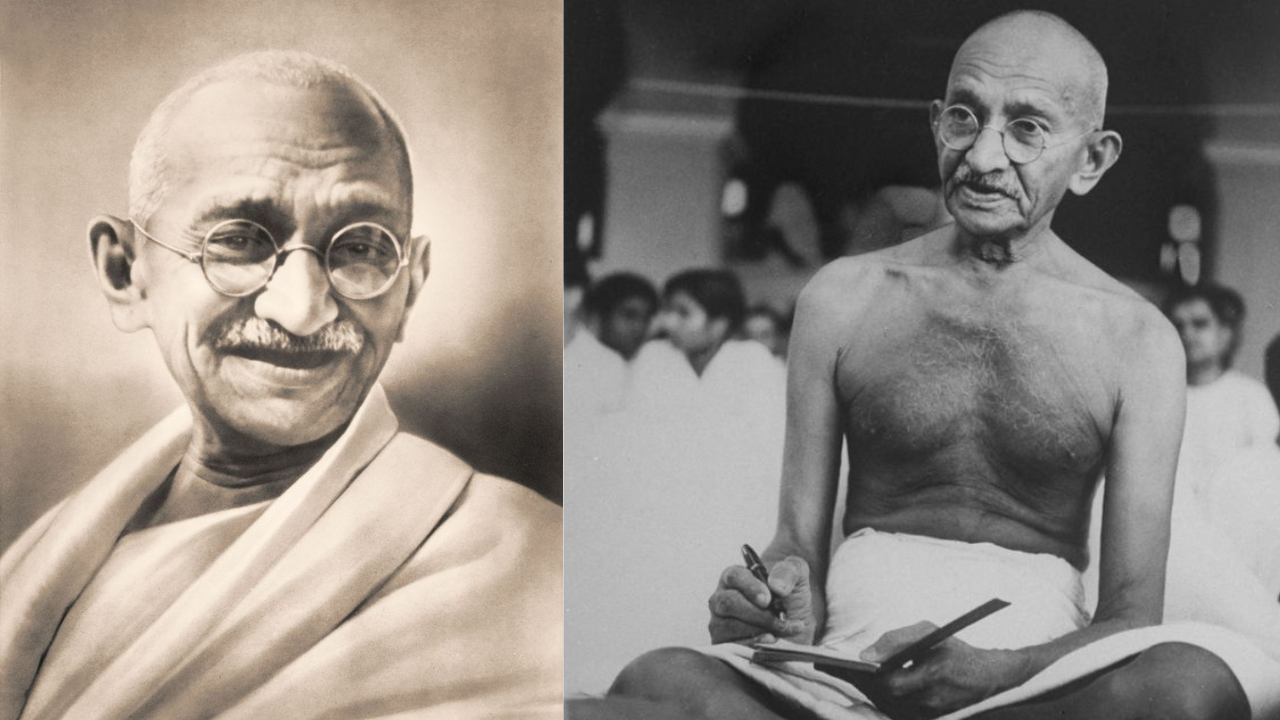Mahatma Gandhi, revered as the 'Father of the Nation,' led India's independence movement with non-violence and civil disobedience. His legacy of peace, justice, and unity continues to inspire, celebrated annually on Gandhi Jayanti.
Mahatma Gandhi, widely revered as the "Father of the Nation," played a pivotal role in India’s struggle for independence from British rule. His philosophy of non-violence and civil disobedience inspired millions and led to significant movements, including the Salt March and the Quit India Movement.
Gandhi Ji championed social reforms, promoting unity among diverse communities while advocating for the rights of the oppressed. His commitment to peaceful resistance and unwavering dedication to justice not only galvanized the Indian populace but also left an indelible mark on global civil rights movements. His legacy as a leader and visionary continues to inspire generations in the quest for freedom and equality.
Gandhi Jayanti
Gandhi Jayanti is celebrated on October 2nd each year to honour the birth of Mahatma Gandhi. This day commemorates his legacy of non-violence, truth, and social justice, encouraging people to reflect on his teachings and values. As a national holiday in India, Gandhi Jayanti is marked by various events, including prayer meetings, discussions, and cultural programmes that promote his ideals.
Schools and institutions often organise activities to educate younger generations about Gandhiji’s contributions and philosophy. The day also coincides with the International Day of Non-Violence, highlighting the global significance of his message of peace and reconciliation.
Father of the Nation
Have you ever wondered why Mahatma Gandhi is referred to as the "Father of the Nation"? Gandhi Ji’s efforts to unite diverse communities and advocate for social justice played a crucial role in mobilising the masses against British rule. The title reflects not only his pivotal role in India's liberation but also the deep respect and admiration he garnered as a visionary leader, whose principles continue to resonate globally.
Subhash Chandra Bose was the first to refer to Mahatma Gandhi as the "Father of the Nation" during a radio address from Singapore in April 1944. This declaration came at a significant moment as Bose was preparing to launch an assault on British India with the Indian National Army, aiming to liberate the country from colonial rule.
In his address, Bose acknowledged Gandhi's pivotal role in uniting Indians against British oppression and highlighted the respect he commanded among Indians. By attributing this title to Gandhi, Bose underscored the latter's influence and the moral authority he held in the freedom struggle, positioning him as a symbol of hope and resilience for millions yearning for independence.
During his broadcast on Azad Hind Radio, Subhash Chandra Bose proclaimed, "The last war of independence of India has begun," and expressed a desire for the blessings of the people in "this holy war of liberation of the Father of the Nation." Bose utilised Azad Hind Radio to foster unity and solidarity among Indians, both domestically and abroad. Established in 1942 in Nazi Germany, the radio service was later relocated to Singapore as the war in Southeast Asia progressed. It broadcast in multiple languages to engage potential volunteers for the Indian National Army and the Indian Legion.
Who gave Gandhi Ji the title of Mahatma?
The title of "Mahatma" was bestowed upon Gandhi Ji by Rabindranath Tagore, the renowned Bengali poet, author, and philosopher. Tagore first used the title in a letter to Gandhi in 1915, stating, "To the one whom India's millions call Mahatma, to him my grateful homage." The term "Mahatma," which means "great soul" in Sanskrit, reflects Tagore's admiration for Gandhi's moral and spiritual qualities, recognising him as an inspiration to people worldwide.
